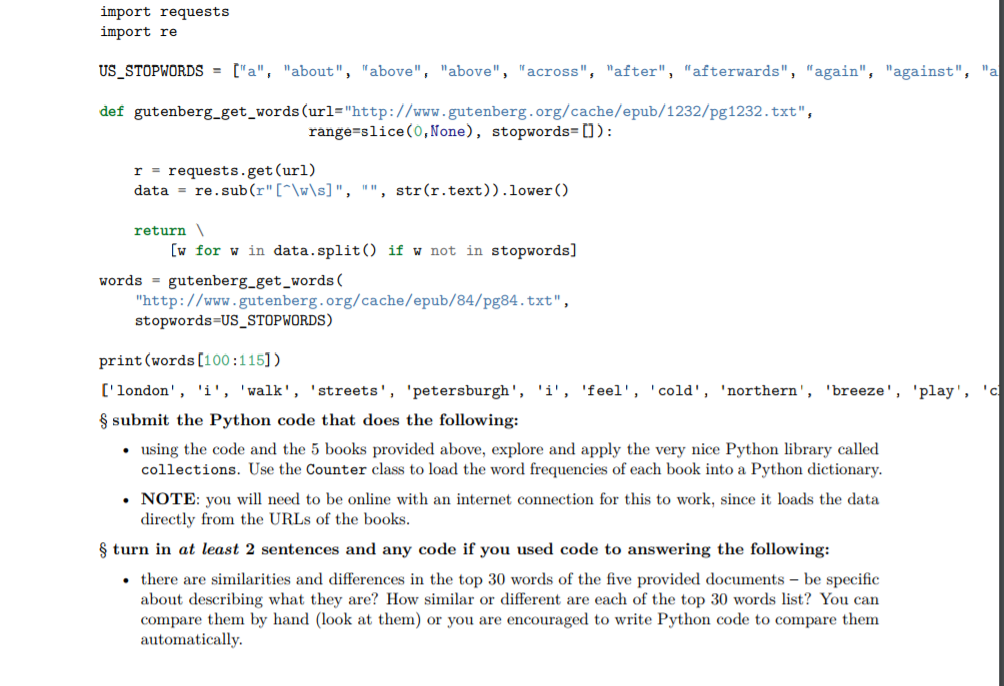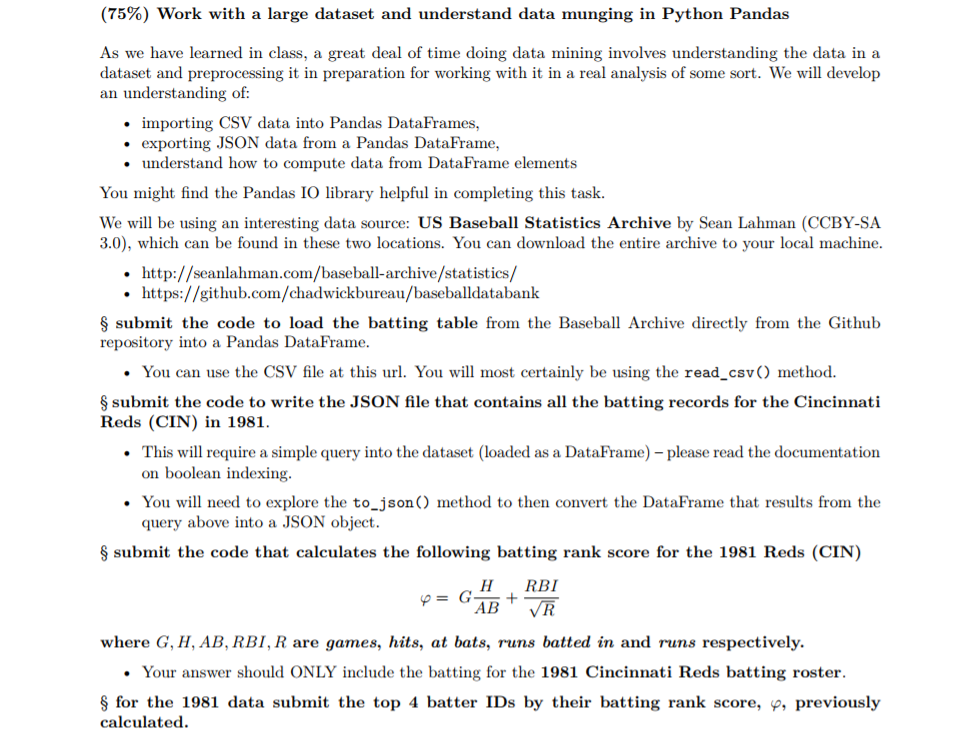Answered step by step
Verified Expert Solution
Question
1 Approved Answer
Can I get python code that runs in jupyter notebook from the above images. import requests import re US-STOPWORDS= [a, about, above, above, across, after,


Can I get python code that runs in jupyter notebook from the above images.
import requests import re US-STOPWORDS= ["a", "about", "above", "above", "across", "after", "afterwards", "again", def gutenberg-get-words (url="http://www.gutenberg.org/cache/epub/1232/pg1232.txt", "against", "a range-slice (0, None), stopwords-0) r = requests.get(ur1) data = re.sub(r"[^\w\s]", "", str (r.text)).lower() return w for w in data.split) if w not in stopwords gutenberg-get-words( words = http://www.gutenberg.org/cache/epub/84/pg84.txt", stopwords-US_STOPWORDS) print(words [100:115]) ['london', 'i', 'valk', 'streets', 'petersburgh', 'i', 'feel', 'cold', 'northern', 'breeze', 'play', 'c submit the Python code that does the following: using the code and the 5 books provided above, explore and apply the very nice Python library called collections. Use the Counter class to load the word frequencies of each book into a Python dictionary. NOTE: you need to be online with an internet connection for this to work, since it loads the data directly from the URLs of the books turn in at least 2 sentences and any code if you used code to answering the following: there are similarities and differences in the top 30 words of the five provided documents -be specific about describing what they are? How similar or different are each of the top 30 words list? You can compare them by hand (look at them) or you are encouraged to write Python code to compare them automaticallyStep by Step Solution
There are 3 Steps involved in it
Step: 1

Get Instant Access to Expert-Tailored Solutions
See step-by-step solutions with expert insights and AI powered tools for academic success
Step: 2

Step: 3

Ace Your Homework with AI
Get the answers you need in no time with our AI-driven, step-by-step assistance
Get Started


